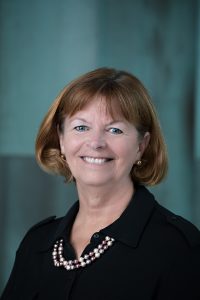The Center hosted its 8th biennial conference on the brain and the law on December 8, 2017. This year’s conference, The Aging Brain: Medical, Legal, and Ethical Perspectives, explored the latest developments in neuroscience, genetics, and clinical practice related to the treatment of dementia and aging.
 Professor Katherine Pearson presented at LSI’s The Aging Brain conference on the Competency and Incapacity: Assessment and Consent panel with Sandra Day O’Connor College of Law’s Professor Betsy Grey; the Hon. Jay M. Polk, Superior Court of Arizona for Maricopa County; and Elizabeth Leonard, Neurocognitive Associates.
Professor Katherine Pearson presented at LSI’s The Aging Brain conference on the Competency and Incapacity: Assessment and Consent panel with Sandra Day O’Connor College of Law’s Professor Betsy Grey; the Hon. Jay M. Polk, Superior Court of Arizona for Maricopa County; and Elizabeth Leonard, Neurocognitive Associates.
Pearson began her legal career as an aide to former-U.S. Senator for Arizona Barry Goldwater. Her time in Washington, which overlapped with the Watergate scandal, was surely fascinating. But, after working in public and private practice, she discovered the emerging field of elder law while teaching at the University of New Mexico School of Law.
Pearson, now a professor at Penn State’s Dickinson Law, focuses her work and scholarship on elder law and financial exploitation. She writes extensively on the subject at the Elder Law Prof Blog.
She spoke to The Aging Brain audience on the unfortunate need for legal protections against financial exploitation of the elderly, a population in the U.S. that is growing and will increasingly suffer some form of dementia. Pearson used examples of cases from Maine and Ireland on improvident transactions to illustrate the need for judicial inquiry into such cases and the challenges of legislating in this area.
Pearson was kind enough to share her thoughts on the conference, as well as the insights gained from and questions posed by the diverse group of presenters.
She wrote on biomarkers, dementia, and the decision to be tested: Legal Implications of Biomarkers for Dementia Highlight ASU’s Conference on “The Aging Brain”, and on end of life care and the evidence around programs and products for preventing dementia: “Snake Oil,” Tattoos & Why Some Hospice Doctors Prefer Medical Powers of Attorney.















